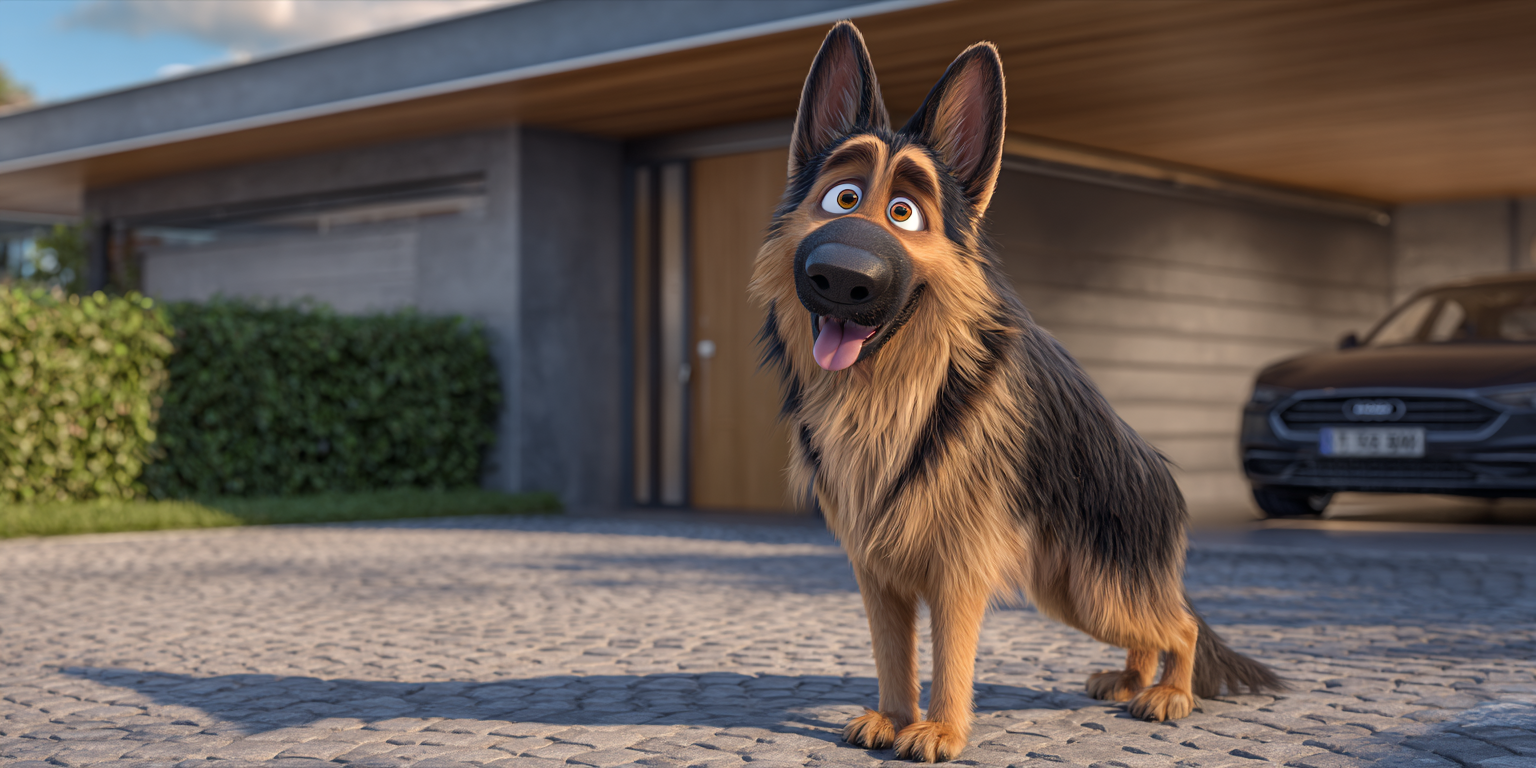German Shepherd Breed Guide
German Shepherd Breed Guide – Loyal, Intelligent, and Always Ready for Action

The German Shepherd is one of the world’s most popular and recognisable dog breeds.
Known for their intelligence, courage, and loyalty, these dogs have been trusted companions, working partners, and family protectors for over a century. Whether you’re looking for a loving family pet, a hardworking service dog, or a loyal best friend, the German Shepherd might be the perfect fit.
Max says: “Ah yes, the German Shepherd. Brains, brawn, and looks – the full package. Just don’t expect them to fetch your slippers like a Golden Retriever. They’ve got more important things to do.”
🐾 Breed History & Personality Traits
The German Shepherd originated in Germany in the late 19th century, developed by Captain Max von Stephanitz. His goal was to create the ultimate herding dog – intelligent, obedient, and versatile. Over time, German Shepherds became more than just herding dogs. Their trainability and courage saw them excel in roles such as police work, military service, search and rescue, and assistance for people with disabilities.
Key Personality Traits:
- Highly intelligent and quick learners
- Loyal and protective of their families
- Confident and courageous
- Energetic and hardworking
- Strong instinct to guard and herd
Max says: “Smart, brave, and loyal? Yeah, yeah, we get it. But don’t underestimate their sass – they’re not afraid to outsmart you if you slack off with training.”
🐶 Exercise, Grooming & Training Needs
Exercise Requirements
German Shepherds are active, athletic dogs that thrive on exercise.
They need at least 1-2 hours of physical activity every day, including walks, runs, and playtime. Mental stimulation is equally important – they love puzzles, obedience training, and tasks that challenge their minds.
Max says: “If you’re a couch potato, get a cat. These dogs need action – and no, running to the fridge doesn’t count as exercise.”
Grooming Needs
German Shepherds have a double coat that sheds year-round, with heavier shedding during spring and autumn.
Regular brushing (at least 2–3 times a week) keeps their coat healthy and helps reduce shedding. They only need occasional baths unless they roll in something gross – which, trust me, they will.
Training Requirements
Training a German Shepherd is essential. These dogs are eager to learn, but their intelligence means they can also be stubborn if not properly guided. Early socialisation and obedience training are crucial to prevent behavioural issues.
Max says: “They’re smart enough to open doors, turn on taps, and probably change the Wi-Fi password if you annoy them. Train early, train often.”
👨👩👧👦 Family & Lifestyle Suitability
German Shepherds are devoted family dogs and make excellent companions for active households. They’re great with children when raised and socialised properly, but due to their size and energy, supervision around small kids is always best.
Best Suited For:
- Active families who enjoy outdoor adventures
- Owners committed to regular training and exercise
- Homes with space to run and play
They may be wary of strangers due to their protective nature, making them excellent guard dogs. However, they’re not ideal for families who are rarely home or have little time for training and exercise.
Max says: “They’ll protect your house, your kids, and your snacks. But ignore them, and they’ll protect your neighbour instead.”
🩺 Common Health Considerations
Like all breeds, German Shepherds are prone to certain health conditions.
Responsible breeders test for these to ensure healthier puppies.
Common Health Issues:
- Hip and elbow dysplasia – common in large breeds
- Degenerative myelopathy – a progressive spinal cord disease
- Bloat (gastric torsion) – a life-threatening condition affecting deep-chested breeds
- Allergies and skin issues – can occur due to their dense coat
- Exocrine pancreatic insufficiency (EPI) – a digestive disorder
Regular vet check-ups, a balanced diet, and maintaining a healthy weight can significantly reduce risks.
Max says: “Keep them healthy – vet visits may cost you, but a sick Shepherd will cost you even more in carpet cleaning. Trust me.”
🐕 Max’s No-Nonsense Advice
“Alright humans, listen up.
- Exercise, exercise, exercise. If you don’t have time for long walks or fetch sessions, get a stuffed version of a German Shepherd.
- Training isn’t optional. You’ve got a furry genius on your hands – don’t let them run the house.
- They’re not backyard decorations. These dogs need love, attention, and jobs to do. If you just want a dog to ‘look cool,’ move along.
- And finally – brush that coat, mate. Unless you want to live in a permanent snowstorm of fur.”
✅ Is a German Shepherd Right for You?
The German Shepherd is a loyal, intelligent, and versatile companion – but they’re not for everyone. They require time, commitment, and consistent training.
In the right hands, they become the ultimate family protector, adventure buddy, and lifelong friend.
Max says: “If you’re ready for a smart, loyal, and slightly bossy sidekick, get a German Shepherd. If not, get a goldfish. They’re much less demanding.”




